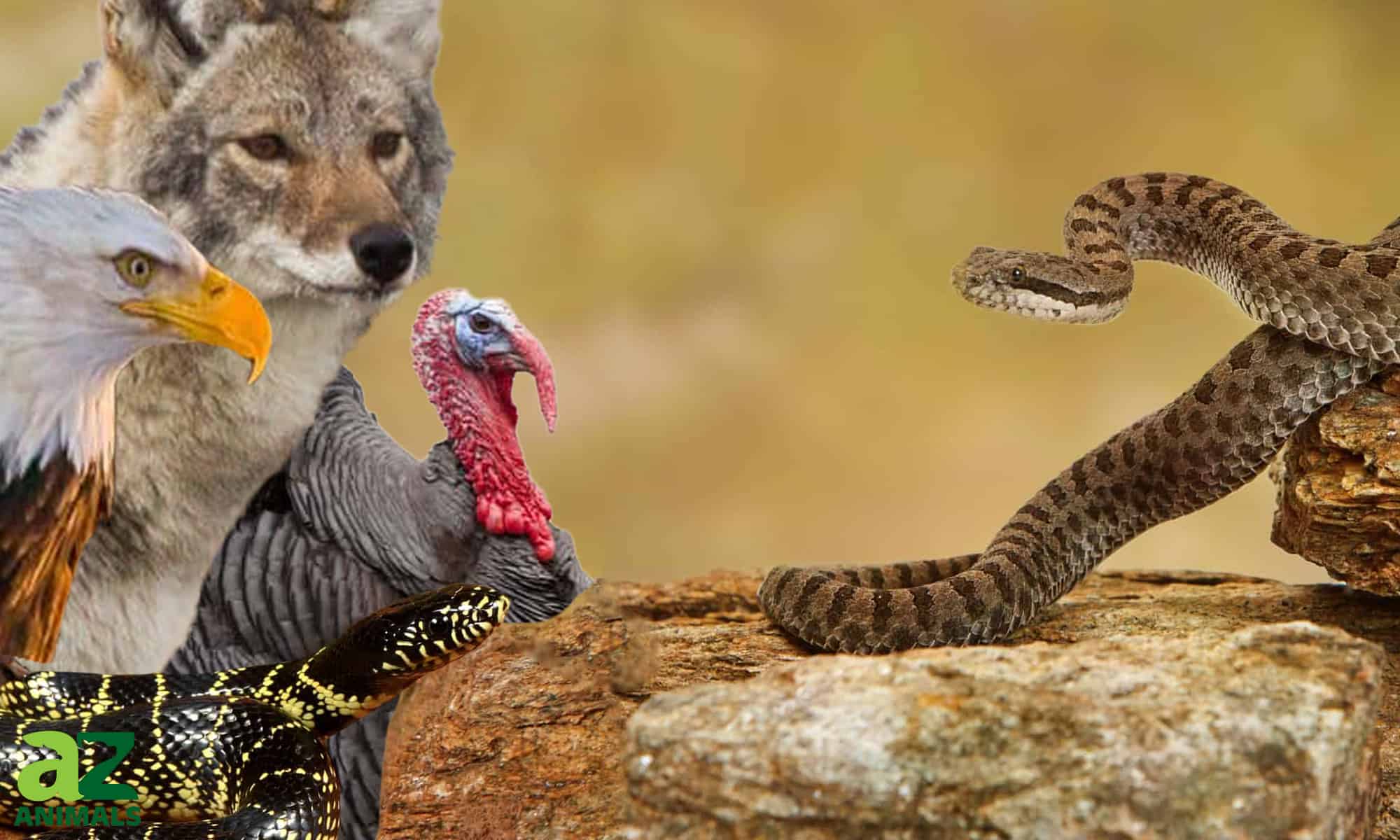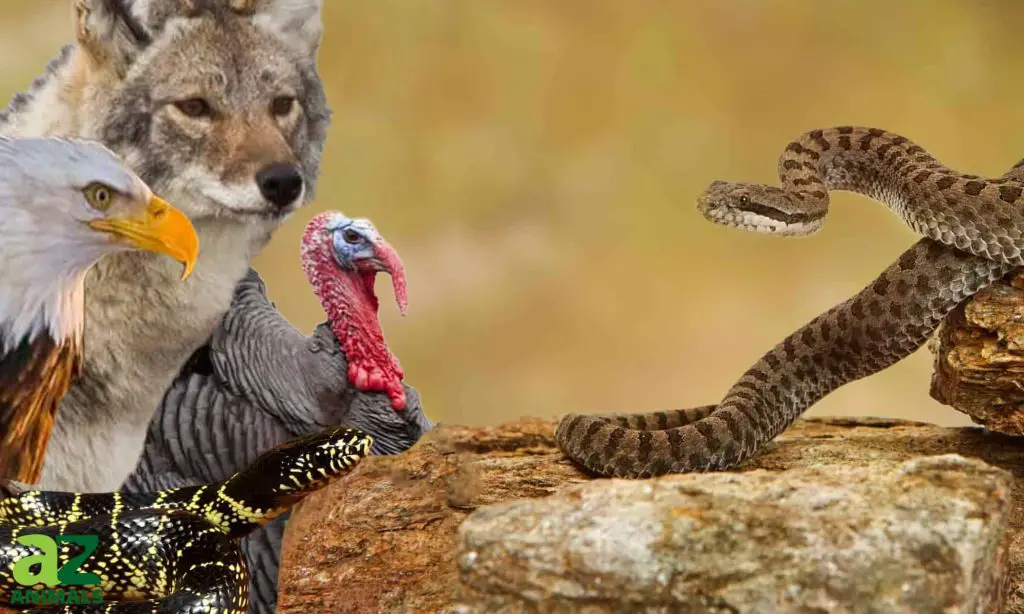Rattlesnakes are infamous for their venomous bites, and it’s no secret that they can be deadly. But have you ever wondered what can kill a rattlesnake? From natural predators to human intervention, there are several factors that can impact the lifespan of these slithering reptiles.
While many animals may fear rattlesnakes, there are a few predators that are not intimidated by their venom. Birds of prey, such as hawks and eagles, are known to hunt and kill rattlesnakes. Additionally, some mammals, such as badgers and mongoose, have developed immunity to the snake’s venom and can take them down with ease. But what about human intervention? Can we kill rattlesnakes and, if so, how? Let’s dive in and find out.
There are several ways to kill a rattlesnake, including using a shovel or a hoe to chop off its head, using a gun to shoot it, or using a snake trap to catch it. However, it’s important to remember that rattlesnakes play an important role in their ecosystem and should only be killed as a last resort if they pose a threat to humans or pets.

What Kills Rattlesnakes?
Rattlesnakes are venomous creatures that can be dangerous to humans and pets. They are found in many parts of North and South America and are responsible for numerous snakebite incidents each year. So, what can you do to protect yourself from these potentially deadly reptiles? In this article, we’ll explore the various methods of killing rattlesnakes and their effectiveness.
1. Natural Predators
Rattlesnakes have natural predators such as hawks, eagles, and other birds of prey. They also have enemies such as coyotes, foxes, and other snakes like kingsnakes that are immune to their venom. However, relying on natural predators to control rattlesnake populations is not a practical solution.
One reason is that many of these predators are also endangered species and need protection. Another reason is that there is no guarantee that they will be around when you need them. Therefore, it is not a reliable method of killing rattlesnakes.
2. Shovels and Hoes
Using a shovel or hoe to kill a rattlesnake is a popular method. The idea is to decapitate the snake, so it can’t strike. However, it is not as easy as it sounds. Rattlesnakes are fast, and you could miss, leaving the snake injured and angry.
Furthermore, the snake’s head can remain alive and still deliver venom for up to an hour after being separated from its body. Therefore, this method is not a reliable way to kill rattlesnakes.
3. Guns
Guns are an effective way to kill rattlesnakes. They are quick and accurate, and you can kill the snake from a safe distance. However, it is important to use the right type of gun and ammunition.
A .22 caliber rifle or pistol is usually sufficient for killing rattlesnakes. However, you must be a good shot and have good eyesight. Furthermore, you should always follow safety guidelines when using a firearm.
4. Traps
Trapping rattlesnakes is another effective method of killing them. You can use different types of traps, such as glue traps and box traps. Glue traps are coated with a sticky substance that traps the snake, while box traps are designed to catch the snake alive.
However, trapping rattlesnakes requires expertise and experience. You must know how to handle the snake safely, or you could get bitten. Furthermore, you cannot release the snake back into the wild due to the risk of spreading diseases.
5. Chemicals
Using chemicals to kill rattlesnakes is not recommended. Many chemicals are hazardous to humans and pets and can contaminate the environment. Furthermore, they are often ineffective at killing the snake, leaving it in pain and suffering.
If you must use chemicals, it is important to follow safety guidelines and use them sparingly. Always keep them out of reach of children and pets.
6. Fencing
Fencing is an effective way to prevent rattlesnakes from entering your property. You can use different types of fences, such as wire mesh and snake-proof fences. Snake-proof fences are specifically designed to keep snakes out and are made of tight-fitting materials that the snake cannot squeeze through.
However, fencing is not a foolproof method. Snakes can climb over fences, and there is always the risk of accidentally trapping them inside your property.
7. Repellents
Repellents are chemical or natural substances that deter rattlesnakes from entering your property. You can use different types of repellents, such as mothballs, ammonia, and essential oils like peppermint and cinnamon.
However, repellents are not always effective, and their effectiveness varies depending on the type of snake and the environmental conditions. Furthermore, some repellents are hazardous to humans and pets and can contaminate the environment.
8. Prevention
Preventing rattlesnakes from entering your property is the best way to avoid snakebite incidents. You can do this by keeping your property clean and free of clutter, sealing all entry points, and removing potential hiding places like woodpiles and rock piles.
Furthermore, you should always wear protective clothing and footwear when walking outdoors, especially in areas known to have rattlesnakes.
9. Benefits of Rattlesnakes
While rattlesnakes are dangerous, they also play an important role in the ecosystem. They help control rodent populations and are a source of food for many predators. Furthermore, their venom has medicinal properties and is used in the development of antivenom and other medications.
Therefore, it is important to respect rattlesnakes and not kill them unnecessarily.
10. Conclusion
In conclusion, there are many methods of killing rattlesnakes, but not all of them are effective or safe. Guns and traps are the most reliable ways to kill rattlesnakes, but they require expertise and experience. Fencing and prevention are the best ways to avoid snakebite incidents.
It is also important to respect rattlesnakes and understand their role in the ecosystem. Killing them unnecessarily can have negative consequences and should be avoided whenever possible.
Frequently Asked Questions
What are some natural predators of rattlesnakes?
Rattlesnakes have a number of natural predators, including birds of prey, such as hawks and eagles, as well as other snakes, such as king snakes and indigo snakes. In addition, mammals like coyotes, foxes, and raccoons will prey on rattlesnakes if given the opportunity.
However, it’s worth noting that while these animals may kill and eat rattlesnakes, they are not necessarily effective at controlling rattlesnake populations. In fact, removing natural predators from an ecosystem can lead to an increase in the number of rattlesnakes, as there are fewer animals to keep their numbers in check.
What are some effective ways to prevent rattlesnakes from entering your property?
There are several things you can do to help keep rattlesnakes away from your property. One of the most effective is to eliminate the things that attract them, like rodents and other small animals. This can be done by removing any sources of food or shelter, such as bird feeders, pet food, and piles of brush or debris.
You can also make your property less hospitable to rattlesnakes by sealing up any gaps or cracks in your home’s foundation or walls, and by installing snake fencing or other barriers around your property’s perimeter. Finally, it’s important to be vigilant when spending time outdoors, and to always keep an eye out for rattlesnakes and other potentially dangerous wildlife.
Are there any natural or home remedies that can be used to repel or kill rattlesnakes?
While there are many home remedies and products on the market that claim to repel or kill rattlesnakes, few of these have been proven to be effective. Some people swear by things like mothballs, sulfur, or vinegar, while others recommend using a high-pressure water hose or even a shotgun to kill rattlesnakes.
However, it’s worth noting that many of these methods are not only ineffective, but they can also be dangerous or illegal. If you’re dealing with a rattlesnake problem, the best course of action is to contact a professional wildlife removal service, who can safely and humanely remove the snakes from your property.
What should I do if I encounter a rattlesnake?
If you encounter a rattlesnake, the most important thing to do is to stay calm and give the snake plenty of space. Rattlesnakes are generally not aggressive and will usually try to avoid contact with humans if possible.
If you’re out hiking or exploring and you see a rattlesnake on the trail, the best thing to do is to back away slowly and give the snake plenty of room to move away. If you’re in a more enclosed space, like a backyard or a garage, you should call a professional wildlife removal service to safely remove the snake.
What should I do if I get bitten by a rattlesnake?
If you get bitten by a rattlesnake, it’s important to seek medical attention immediately. Rattlesnake bites can be incredibly dangerous and can even be fatal if left untreated.
While you’re waiting for medical help to arrive, you should try to stay as calm as possible and keep the affected limb immobilized. You should also remove any tight clothing or jewelry near the bite site, as swelling can occur rapidly and can impede circulation.
It’s important to avoid using any home remedies or attempting to suck out the venom, as these methods are ineffective and can actually make the situation worse. The best thing to do is to seek professional medical help as soon as possible.
How to kill a Rattlesnake Properly
In conclusion, there are several ways to kill rattlesnakes, but it’s important to remember that they are an important part of the ecosystem. It’s best to avoid confrontations with them altogether and instead focus on preventative measures, such as wearing protective clothing and keeping a safe distance.
If you do encounter a rattlesnake and need to eliminate it, the most humane option is to call a professional snake removal service. They have the expertise and equipment necessary to safely and humanely remove the snake from your property.
Ultimately, the best way to protect yourself from rattlesnakes is to educate yourself on their behavior and habitat, and take steps to avoid encounters with them. By being aware of your surroundings and taking precautionary measures, you can coexist peacefully with these fascinating and important creatures.

